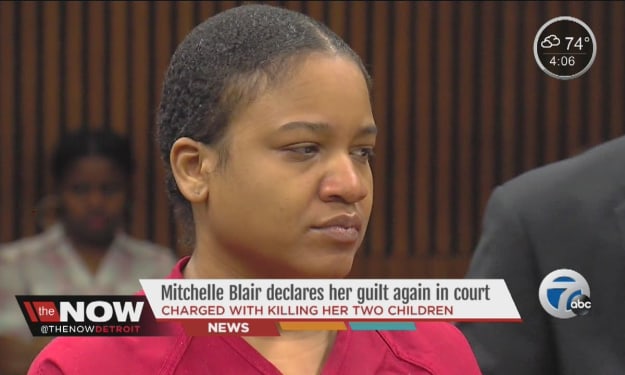Title: Moses Sithole:
The ABC Killer of Johannesburg

Introduction:
Moses Sithole, infamously known as the ABC Killer, sent shockwaves through South Africa with a reign of terror during the early 1990s. This article delves into the life and crimes of Moses Sithole, exploring his background, his modus operandi, the intense investigation that finally captured him, and his current whereabouts.
Background:
Moses Sithole was born on November 17, 1964, in Vosloorus, a township near Johannesburg, South Africa. He grew up in difficult circumstances, experiencing poverty and an unstable family life. Sithole was one of twelve siblings, raised by a single mother. Despite his challenging upbringing, he showed intelligence and ambition, eventually earning a scholarship to study electrical engineering.
The Killings and Modus Operandi:
Between 1994 and 1995, Sithole embarked on a horrifying killing spree, targeting vulnerable women across Johannesburg. His preferred victims were young women seeking work or better opportunities in the city. Sithole deceived them by offering them job prospects in various industries, often promising them positions or interviews. Sithole's manipulation and exploitation allowed him to gain the trust of his victims, who were hopeful for a better future.
Once he had gained their trust, Sithole would take his victims to secluded areas, such as open fields or abandoned buildings. There, he would rape, strangle, and often mutilate them. Sithole's crimes were characterized by extreme violence, leaving his victims in a state of horror and agony. He would then dispose of their bodies in remote areas, making it difficult for them to be discovered.
The Investigation:
The ABC killings initially baffled the authorities, as the crimes appeared to be disparate and unrelated. However, as the body count continued to rise and patterns began to emerge, law enforcement agencies started to suspect that they were dealing with a serial killer. The brutal nature of the crimes and the frequency with which they occurred sent shockwaves through the community, instilling fear and frustration.
Police investigations were intensified, and a task force was formed to track down the killer. The team meticulously examined crime scenes, collected forensic evidence, and conducted extensive interviews with potential witnesses. As the investigation progressed, they were able to connect the dots and link the crimes to a single perpetrator.
The Breakthrough and Arrest:
A major breakthrough in the case occurred when a survivor managed to escape Sithole's clutches. The victim provided crucial information to the police, leading them to Moses Sithole. Under increasing pressure and fearing imminent capture, Sithole attempted to flee but was apprehended on November 5, 1995.
During the subsequent interrogations, Sithole initially denied any involvement in the crimes. However, evidence began to mount against him, including DNA matches and testimony from survivors. Eventually, Sithole confessed to the murders, revealing chilling details about his crimes.
Conviction and Current Whereabouts:
In 1997, Moses Sithole stood trial for the murders and was convicted of 38 counts of murder, 40 counts of rape, and six counts of robbery. He was handed an astounding 2,410 years in prison, effectively receiving multiple life sentences. Sithole is currently serving his sentence in the maximum-security section of a South African prison, where he will likely spend the rest of his life.
Conclusion:
Moses Sithole's reign of terror as the ABC Killer left an indelible mark on South Africa. His acts of violence and brutality devastated the lives of his victims and their families, striking fear into the hearts of communities across Johannesburg. However, through the relentless efforts of law enforcement, combined with the bravery of survivors, Sithole was brought to justice.
The case of Moses Sithole serves as a painful reminder of the existence of evil in our society. It also underscores the importance of ongoing efforts to strengthen law enforcement agencies and ensure the safety and protection of vulnerable individuals. While Sithole's crimes will forever be etched in the memory of South Africa, his capture and conviction stand as a testament to the determination and resilience of those who worked tirelessly to bring him to justice.
Since his conviction, Moses Sithole remains incarcerated in a maximum-security prison in South Africa, serving multiple life sentences for his 38 counts of murder, along with numerous counts of rape and robbery. It is unlikely that he will ever be released from prison, and he will spend the rest of his life behind bars.
The legacy of Moses Sithole serves as a stark reminder of the darkness that can reside within individuals and the importance of vigilance in protecting those who are vulnerable to manipulation and exploitation. It is a testament to the resilience of survivors and the dedication of law enforcement that South Africa was able to bring this dangerous serial killer to justice.
The case of Moses Sithole also highlights the need for continued efforts in tackling violence against women and providing support for victims. By amplifying the voices of survivors and fostering open conversations about gender-based violence, society can work towards preventing future tragedies and ensuring a safer environment for all.
As South Africa moves forward, it is essential to learn from the haunting legacy of Moses Sithole, ensuring that his crimes are not forgotten. By acknowledging the bravery of survivors and supporting initiatives that promote safety and healing for victims, society can work towards a future where violence is eradicated, and all individuals are able to live without fear.
In conclusion, Moses Sithole's reign of terror left an indelible mark on South Africa, but his capture and conviction stand as a testament to the resilience of survivors and the dedication of law enforcement. As the nation mourns the lives lost and continues to heal from the trauma inflicted, it is essential to honor the memory of the victims, support survivors, and strive for a society free from violence.





Comments
There are no comments for this story
Be the first to respond and start the conversation.